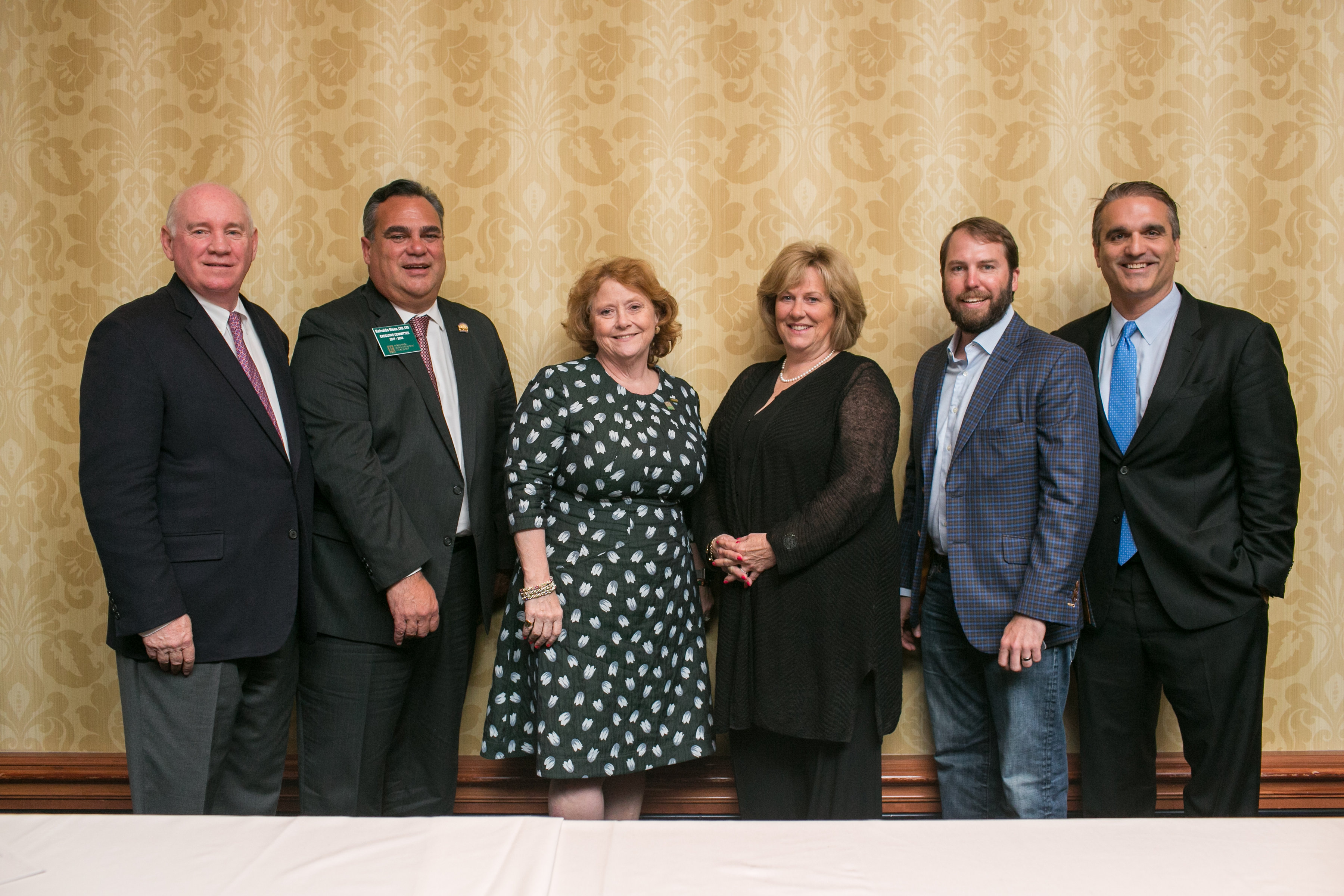Flexibility and a strong value proposition that both agents and consumers buy into—that’s the secret to surviving in a shifting industry quickly being transformed by technology and disruptive business models.
“You have to be nimble—you can’t manage from a state of fear,” said John Featherston, CEO/president of RISMedia, as co-moderator alongside Joseph Rand, chief creative officer of Better Homes and Gardens Real Estate Rand Realty, at RISMedia’s Power Broker Forum, held May 17 in conjunction with the REALTORS® Legislative Meetings & Trade Expo in Washington, D.C.
Among many strategies shared at the forum, “Adapt, Compete, Win: How to Wow Customers—and Agents—in a Changing Real Estate World,” embracing and adapting to change was the underlying message from panel members Helen Hanna Casey, chief executive officer of Howard Hanna Real Estate Services; Rett Harmon, co-owner of CENTURY 21 Novus Realty; Rei Mesa, CEO/president of Berkshire Hathaway HomeServices Florida Realty; and Tipper Williams, operating principal of six Keller Williams offices in the Virginia region.

(L to R): John Featherston, CEO/President, RISMedia; Rei Mesa, CEO/President, Berkshire Hathaway HomeServices Florida Realty; Helen Hanna Casey, CEO, Howard Hanna Real Estate Services; Rett Harmon, Principal/REALTOR®, CENTURY 21 Novus Realty; Tipper Williams, Operating Principal, Keller Williams Virginia Realty Alliance Group; and Joseph Rand, Chief Creative Officer; Better Homes and Gardens Real Estate Rand Realty, discuss the evolving industry at midyear during RISMedia’s Power Broker Forum. (Credit: PlanOmatic)
“The real estate industry may be a much easier place to work in 10 years from now because of the tech coming in, but if agents don’t get with the program, they won’t be in the business,” said Williams.
Is adapting to technology enough? Casey doesn’t believe so, as today’s consumers are savvy, and are looking for brokerages that go the extra mile.
“The whole thing is customer service; that’s where the demand is,” said Casey. “Otherwise, we would have already been taken away by technology. Today’s educated and articulated consumers aren’t going to put up with sales associates unless they are doing more service-oriented work for their clients.”

(Credit: PlanOmatic)
Consumers shouldn’t be the single focus either, Rand noted. Brokerages have a responsibility to manage their agents. Business models, core values and strategies need to be tested—a proven track record is what leads to successful business and client relationships.
“If it’s not affecting agents, why would they adopt it?” Casey asked. “If you’re not looking at how you are affecting consumers, why would they come to us? You have to think about both the agent and consumer to make it work.”
Creating a competitive brokerage can be accomplished with several strategies—Mesa noted there is no one-size-fits-all solution. Harmon, for example, looks at the value he is offering, ensuring it can be attractive enough and still genuine to stand out in an industry with a lot of noise. With Williams’ previous experience in education, she believes continuous learning is key to creating a successful and attractive brokerage with a competitive edge.

(Credit: PlanOmatic)
“I noticed over the years that when I learned something by watching others or sitting in a classroom, I became better,” said Williams. “I translate that into real estate. If we’re not changing and not evolving, someone else is going to come in and do it for you.”
Mesa focuses on only bringing in agents that meet his brokerage’s standards—hiring practices which must be scalable in order to maintain consistency across the board, whether the broker manages one or multiple offices.
“Focus on hiring and attracting the best people out there who are going to be passionate about the company,” said Mesa. “When you have a small office that you can see and touch every day, you control that experience for the consumer—but when you have 40-plus offices, that consumer can have a completely different experience with agents even a few miles apart. We have to look at the industry and how to overcome that.”
So, what does the real estate industry of tomorrow look like? Although impossible to predict, the panelists see a trend toward:
Agent Teams
“Expand on working together, and it makes a much higher quality of life if done correctly,” said Harmon. “It’s all about learning how to merge businesses so that agents can enjoy travel if they want to take a break without sacrificing their real estate career and income.”
Stronger Brokerage Standards
“For those with more than one office, you can’t overlook communications,” said Casey. “If you’re not in-sync, you’re not going to be able to fire those you need to fire. Our managers have to deliver the message day in and day out, so you have to give them those standards.”
Disruptor Partnerships
“Keep your mind open with so-called ‘disruptors,'” said Mesa. “We need to talk to them and we need to think about how to partner with them instead of pushing them out—they are not going away.”
With no crystal ball in hand, it can be difficult to determine which strategies will work best for the changes ahead—and, of course, some business models work better than others, depending on the market, size of the brokerage and how the strategies align with their core values. Although each case is unique, there are steps brokers can take to ensure they are putting their best foot forward. Here’s what the panelists suggested:
- “Stop being fearful of new ideas.” – Mesa
- “Stop doing what everyone else is doing, and do what you need to do.” – Casey
- “Don’t be afraid of technology.” – Harmon
- “Do things in a systematic way.” – Williams
- “Market to people in a way that is meaningful to them.” – Rand
- “Continue to develop, break down walls and focus on the consumer.” – Featherston
 The Panel, RISMedia’s Power Broker Forum (Credit: PlanOmatic)
The Panel, RISMedia’s Power Broker Forum (Credit: PlanOmatic)
 Liz Dominguez is RISMedia’s associate content editor. Email her your real estate news ideas at ldominguez@rismedia.com. For the latest real estate news and trends, bookmark RISMedia.com.
Liz Dominguez is RISMedia’s associate content editor. Email her your real estate news ideas at ldominguez@rismedia.com. For the latest real estate news and trends, bookmark RISMedia.com.











